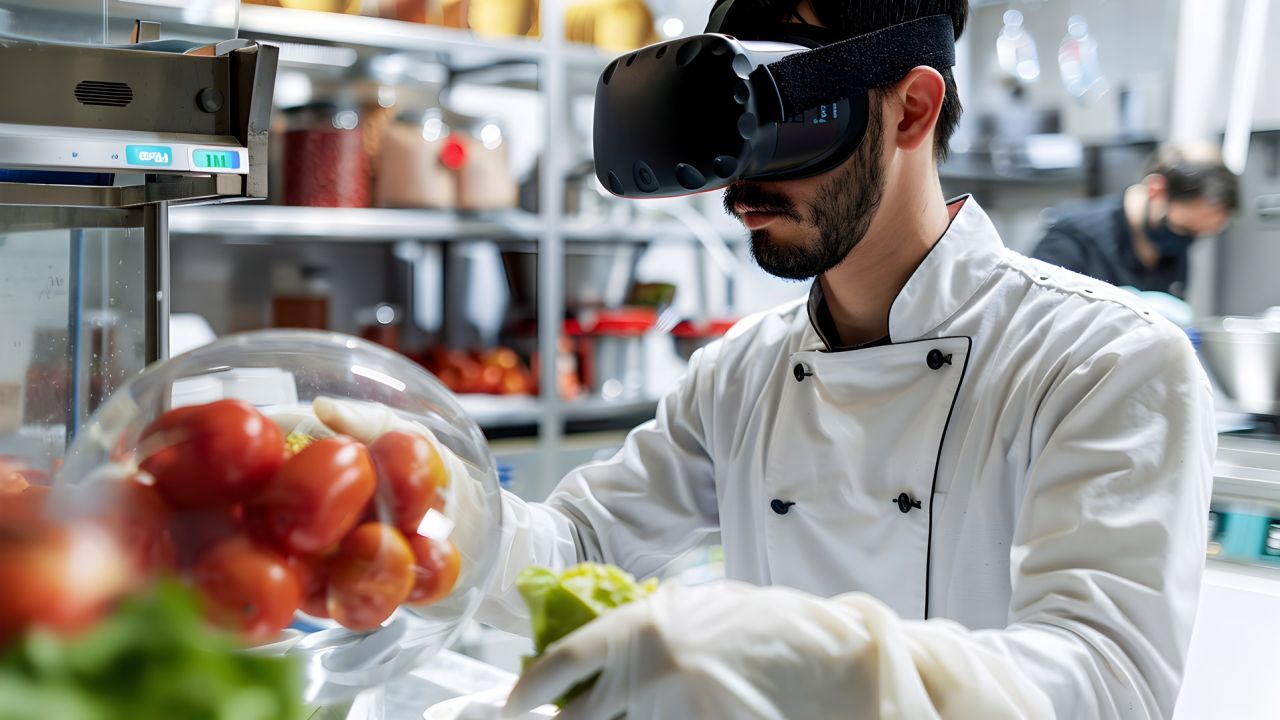Food Handling Protocols in VR: Revolutionising Safety Training

 Author: Spark Team
Author: Spark Team
Food Handling Protocols in VR: Revolutionising Safety Training
Introduction to Food Handling Protocols in VR
In the food service industry, maintaining high standards of food safety is crucial to protect public health and comply with regulations. Virtual Reality (VR) offers an innovative solution for training employees on food handling protocols, providing immersive and interactive experiences that enhance learning and retention. Spark Emerging Technologies leverages VR technology to create engaging training programs that improve food safety practices across various settings.
Benefits of Food Handling Protocols in VR
Implementing VR for food handling protocol training provides numerous advantages that enhance employee learning and compliance:
Immersive Learning Experience: VR allows trainees to engage in realistic food handling scenarios, enabling them to practice proper techniques in a safe environment.
Enhanced Retention: The interactive nature of VR training promotes better retention of information compared to traditional training methods, as employees actively participate in simulations.
Standardised Training: VR ensures that all employees receive consistent training, minimising discrepancies in food safety practices across different locations.
Immediate Feedback: Trainees can receive real-time feedback during VR simulations, helping them correct mistakes and reinforce proper food handling techniques.
Increased Engagement: The gamified elements of VR training can boost employee motivation and interest, leading to a more effective learning experience.
Real-World Applications of Food Handling Protocols in VR
Onboarding New Employees: VR can be used to train new hires on essential food handling protocols, ensuring they understand safety practices before they begin work.
Continuous Education: Regular VR training sessions can help reinforce food safety standards and update employees on new regulations or procedures.
Hazard Identification: VR can simulate various food safety hazards, allowing employees to practice identifying and responding to potential issues effectively.
Compliance Training: VR training can be tailored to meet specific regulatory requirements, ensuring that employees are well-versed in compliance standards.
Customer Service Scenarios: VR can incorporate customer service training alongside food safety protocols, helping employees understand the importance of hygiene and safety in customer interactions.
How Spark Emerging Technologies is Leading VR Solutions for Food Handling Protocols
At Spark Emerging Technologies, we specialise in developing VR solutions that enhance food handling training and safety compliance. Our immersive training tools provide food service providers with the resources they need to improve employee education effectively. By collaborating with restaurants, catering companies, and food safety organisations, we create tailored VR applications that address specific food handling challenges.
Addressing Key Challenges with VR Food Handling Training
User-Friendly Interfaces: Our VR applications feature intuitive designs, ensuring that employees can easily navigate and engage with the training content.
Integration with Learning Management Systems: We ensure our VR solutions can seamlessly integrate with existing training programs and learning management systems for efficient tracking and reporting.
Data Privacy and Security: Protecting sensitive training data is crucial; we implement robust security measures to safeguard information collected during VR interactions.
Customisation for Various Food Service Settings: Our VR solutions are adaptable and customisable, allowing for deployment across different types of food service operations, from restaurants to food production facilities.
Case Study: VR Food Handling Training for a Restaurant Chain
A national restaurant chain partnered with Spark Emerging Technologies to implement VR food handling protocol training aimed at enhancing employee safety and compliance. The VR platform allowed employees to engage in realistic scenarios related to food safety, leading to improved understanding and application of protocols. This initiative resulted in a 30% reduction in food safety violations and increased employee confidence in handling food safely.
The Role of VR in Advancing Food Safety Training
Food handling protocols in VR are transforming how the food service industry approaches employee training and safety compliance. By providing immersive, interactive experiences, VR enhances understanding and retention of critical food safety practices, leading to improved compliance and overall public health protection. This innovative approach not only streamlines training processes but also fosters a culture of safety within food service organisations.
Future of Food Handling Protocols in VR
As VR technology continues to evolve, the potential for food handling protocol training applications will expand significantly. Spark Emerging Technologies is committed to enhancing our VR solutions, anticipating more sophisticated applications that empower food service providers to engage deeply in food safety training. The future promises increasingly interactive and engaging VR experiences that will play a critical role in the food service industry.
Conclusion
Food handling protocols in VR offer innovative solutions for enhancing training and compliance in the food service industry. Spark Emerging Technologies provides cutting-edge VR applications that enable organisations to visualise and practice food safety techniques effectively. Discover how our VR solutions can transform your food handling training initiatives—contact Spark Emerging Technologies for a demo today.
Contact Us:
Interested in optimising your food handling training process with VR? Contact Spark Emerging Technologies to schedule a consultation and learn how our solutions can benefit your organisation.
© 2026 All Rights Reserved | Company Reg No. 05327622 | Spark Emerging Technologies Limited



